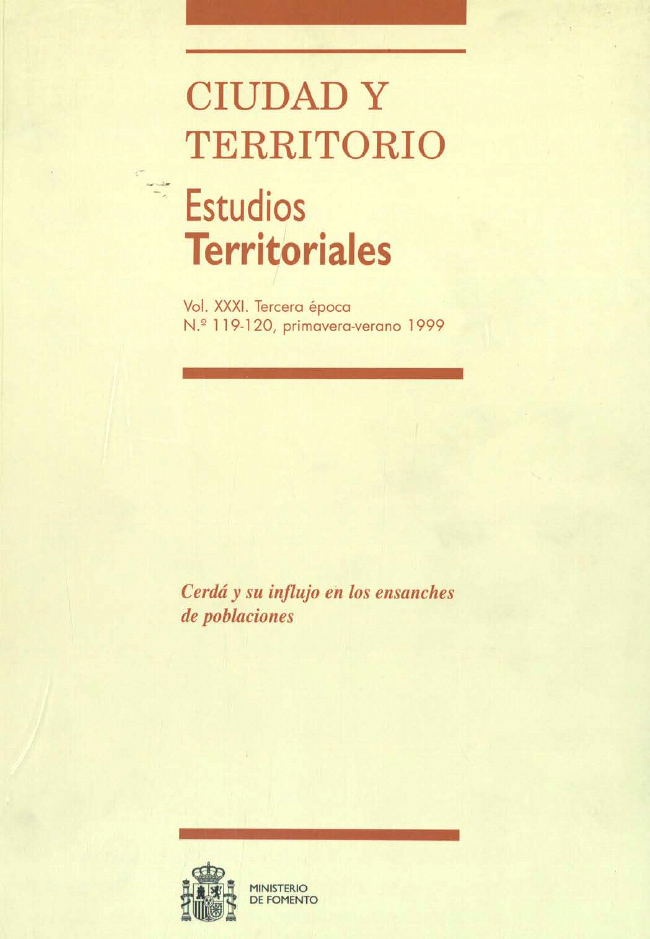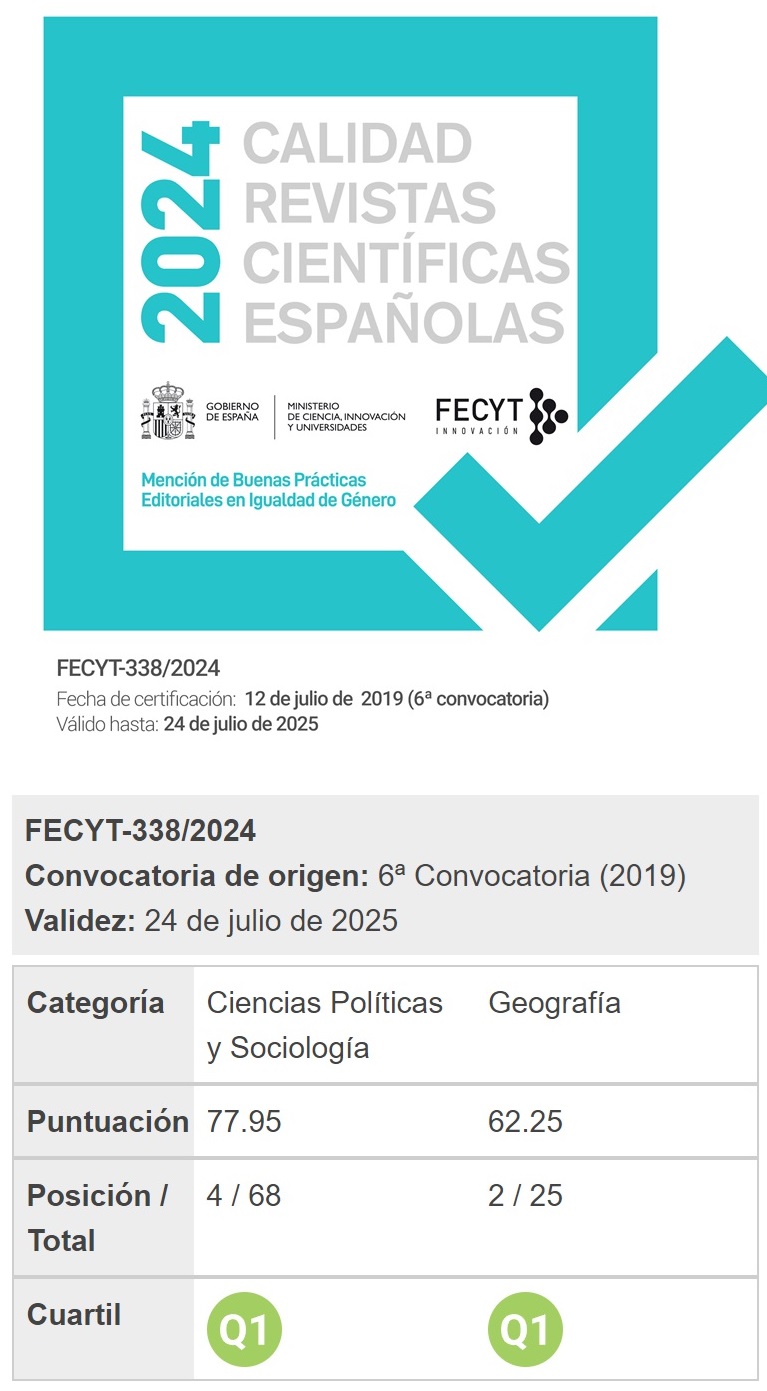La influencia de Ildefonso Cerdà en la fundamentación jurídica de la urbanización
Palabras clave:
Cerdà, Derecho urbanístico, Ensanches urbanos, Ordenanzas de la edificación, Historia de l urbanismoResumen
En el presente artículo se aborda el proceso de concepción por Cerdà del procedimiento jurídico y administrativo de articulación de la Urbanización. Como es sabido Ildefonso Cerdà era Ingeniero de Caminos, pero imbuido de una visión global del proceso urbanizador se documentó en estudios sociales, económicos y jurídicos que le permitieron intuir y alumbrar técnicas jurídicas de ordenación y financiación del Urbanismo que todavía en nuestros tiempos sorprenden por su capacidad operativa y su fundamentación en postulados de equidad en la distribución de los beneficios y cargas de la urbanización, aspectos que en la actualidad siguen ocupando la preocupación, como evidencia el Derecho comparado, de los legisladores en materia urbanística. La conjunción armónica de las tres piezas básicas -Ordenanzas de la Construcción, Proyecto técnico de la urbanización y el Plan económico- constituye la principal aportación de Cerdà que, pese a la desfiguración de sus ideas originales, ha influido decisivamente en la legislación urbanística de nuestro país desde la segunda mitad del siglo XIX hasta nuestros días.
Descargas
Descargas
Publicado
Cómo citar
Número
Sección
Licencia
Derechos de autor 1999 Martín Bassols Coma

Esta obra está bajo una licencia internacional Creative Commons Atribución-NoComercial-SinDerivadas 4.0.
Sin perjuicio de lo dispuesto en la legislación vigente sobre Propiedad Intelectual, y conforme a la misma, el/la los/las autor/a/es/as que publiquen en CyTET cede/n a título gratuito, de modo no exclusivo y sin límite temporal al Ministerio de Transportes, Movilidad y Agenda Urbana los derechos para difundir, reproducir, comunicar y distribuir en cualquier formato actual o futuro, en papel o electrónico, la versión original o derivada de su obra bajo licencia de Creative Commons Reconocimiento-NoComercial-SinObraDerivada 4.0 Internacional (CC BY-NC-ND 4.0), así como para incluir o ceder a terceros la inclusión de su contenido en índices, repositorios y bases de datos nacionales e internacionales, con referencia y reconocimiento en todo caso de la autoría del mismo.
Además, al realizar el envío, el/la los/las autor/a/es/as declara/n que se trata de un trabajo original en el que se reconocen las fuentes que han sido utilizadas en su estudio, comprometiéndose a respetar la evidencia científica y a no modificar los datos originales para verificar o refutar una hipótesis de partida; que el contenido esencial del mismo no ha sido publicado previamente ni se publicará en ninguna otra obra o revista mientras esté en proceso de evaluación en la revista CyTET; y que no se ha remitido simultáneamente a otra publicación.
Los autores deben firmar un Formulario de Cesión de Derechos, que les será enviado desde la Secretaría de CyTET una vez se acepte su artículo para ser publicado.
Con el objetivo de favorecer la difusión del conocimiento, CyTET se adhiere al movimiento de revistas de Open Access (OA) y entrega la totalidad de sus contenidos a diversos índices, repositorios y bases de datos nacionales e internacionales bajo este protocolo; por tanto, la remisión de un trabajo para ser publicado en la revista presupone la aceptación explícita por parte del autor/a de este método de distribución.
Se anima a las/os autoras/es a reproducir y alojar sus trabajos publicados en CyTET en repositorios institucionales, páginas web, etc. con la intención de contribuir a la mejora de la transferencia del conocimiento y de la citación de dichos trabajos.








 Enlace a CyTET en Linkedin
Enlace a CyTET en Linkedin